'Here & Now' Highlights: Richard Monette, Jay Rothman, Meagan Wolfe
Here's what guests on the March 3, 2023 episode said about the road blockades on Lac du Flambeau tribal lands, a proposal to raise tuition at UW System schools and cybersecurity threats ahead of the 2024 election.
By Frederica Freyberg | Here & Now
March 6, 2023
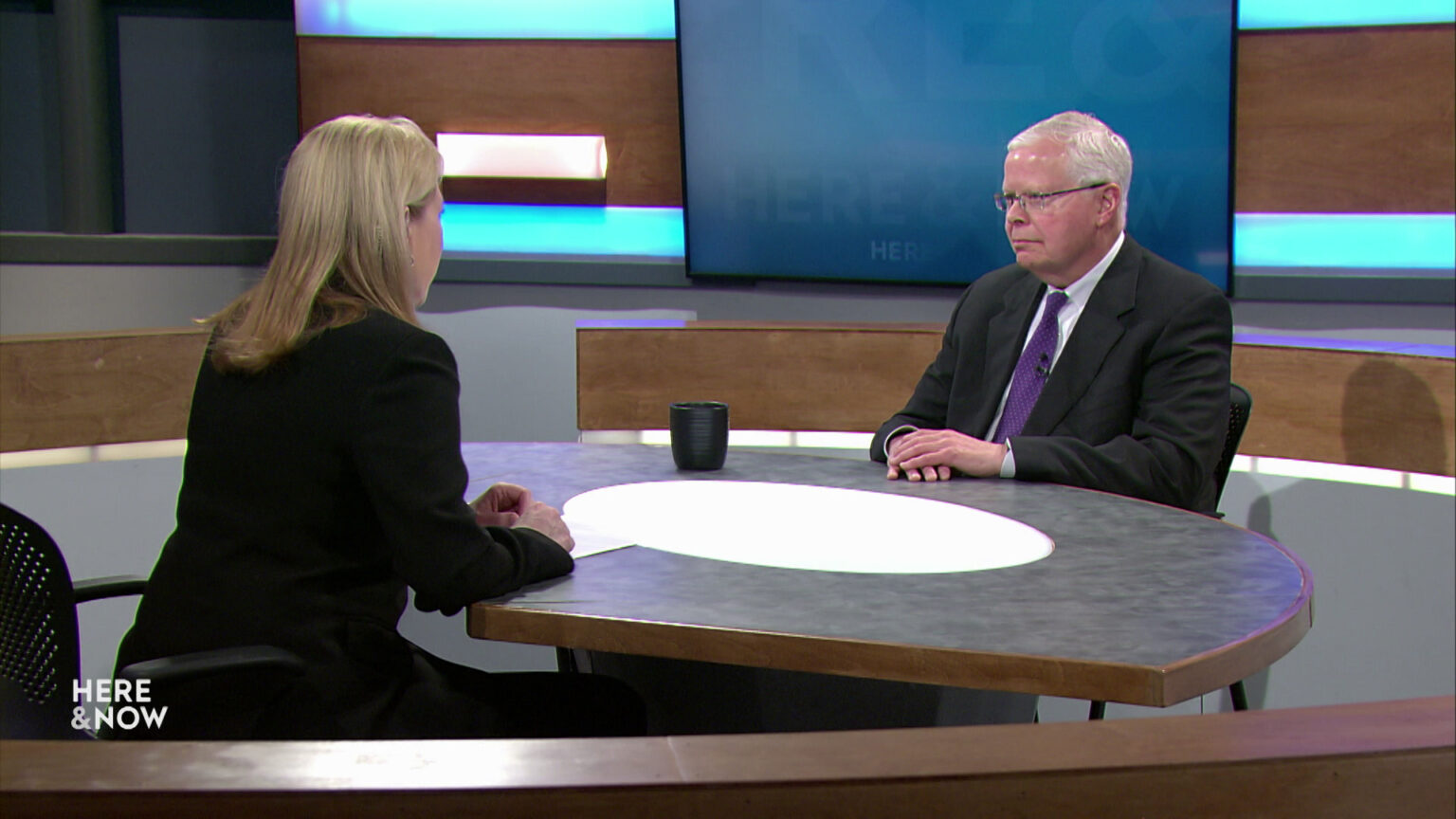
Frederica Freyberg and Jay Rothman (Credit: PBS Wisconsin)
Non-tribal homeowners on the Lac du Flambeau reservation have filed a lawsuit over access roads to their property being blocked in a land dispute with the tribal government — University of Wisconsin Law School professor Richard Monette described the 19th century laws that resulted in such land rifts. UW System President Jay Rothman explained the need for a 5% tuition hike in the 2023-24 school year. Wisconsin Elections Commission Administrator Meagan Wolfe said the agency is always vigilant about cybersecurity threats, but is vigilant leading up to the 2024 election cycle.
Richard Monette
Professor of Law, University of Wisconsin Law School
- In a federal lawsuit, non-tribal landowners are seeking an injunction against barricades blocking access to their homes on the Lac du Flambeau reservation. An easement to the roads expired in 2013, and the tribal government is asking for $20 million for right-of-way and trespass damages. Plaintiffs in the lawsuit said they worry their current passage over frozen waters will soon leave them stranded when the ice goes out as weather warms. For its part, the tribe said the lawsuit essentially asks for them to give up their reservation land — which is all they have left. Richard Monette, director of the Great Lakes Indigenous Law Center, discussed the legal history that shaped this impasse.
- Monette: “From that historical perspective, the Bureau of Indian Affairs was probably the font of these leases in the first instance, and largely to blame for them. They probably issued some of those leases, rights of ways, etc., without any consultation or consent from the tribe… At the time, the town probably just thought, well, we’ll just let it lie and it’ll go away. And, you know, just like those leases from 25 or 50 or even 99-year leases which are common, ‘they’ll run out and the Indians will be gone’ — right? Well, they ran out and they weren’t gone. Instead there’s a policy toward self-determination… The Bureau of Indian Affairs might say, Congress might say we will settle this out, the trespassing for 10 years now — future cost — we’ll pay a few millions to do that. But we will do that under a couple of conditions. Tribe: You will establish a recording office so that these kinds of interests can be registered somewhere so that title companies can find it. And, Bureau of Indian Affairs: you will provide all the technical assistance they need to do that. That’s what should happen and could happen here if this is done correctly.”
Jay Rothman
President, University of Wisconsin System
- As the biennial state budget is being negotiated, the UW System wants to raise tuition 5% starting in the fall 2023 semester – an increase in revenue that would be in addition to general purpose tax revenues that are part of the state’s funding for its universities. Rothman said after a decade of tuition freezes, the hike is needed to try to keep pace with inflation, among other costs. In the spring 2023 semester, annual tuition costs at the 13 public universities across the state range from about $4,750 to just under $9,275 at UW-Madison.
- Rothman: “It’s been 10 years since tuition has been adjusted and during that period of time inflation has been there, but much more accelerated over the last couple of years. So, we had to balance all of what we’re asking for in terms of a tuition increase. It is not going to cover the cost of inflation as a practical matter. So we are going to have to also look at those expense levers to make sure that we can achieve the two goals that we really have. One is to maintain the quality and excellence that the UW System is known for. And secondly, to ensure the long-term financial stability and sustainability of our universities.”
Meagan Wolfe
Administrator, Wisconsin Elections Commission
- Election officials across the country and in Wisconsin have a vigilant eye on potential cybersecurity threats ahead of the 2024 elections. Risks could be heightened with international tensions over U.S. support of Ukraine in its war with Russia. The Wisconsin Elections Commission trains the roughly 1,850 local officials running the voting process, but Wolfe said more long-term election security funding is needed.
- Wolfe: “What we need is sustainable funding for cybersecurity in elections and physical security in elections as well. What we see right now is we’ve received federal grant funding, which allows us to implement one-time solutions for local election offices, for state election offices — for us to be able to build out our capabilities. But there is no finish line when it comes to cybersecurity. …Every day that goal post moves — the threats that we face. Those move in, they change. And so we really need to find a way, as states and local governments, to be able to sustain those initiatives because the threat of a cybersecurity attack. It’s not going to go away, and there is no finish line. And so I think finding ways to create sustainable funding and programming to support security and elections is really, really an important initiative, and should be a priority at both the state and the local level.”
Watch new episodes of Here & Now at 7:30 p.m. on Fridays.
 Passport
Passport




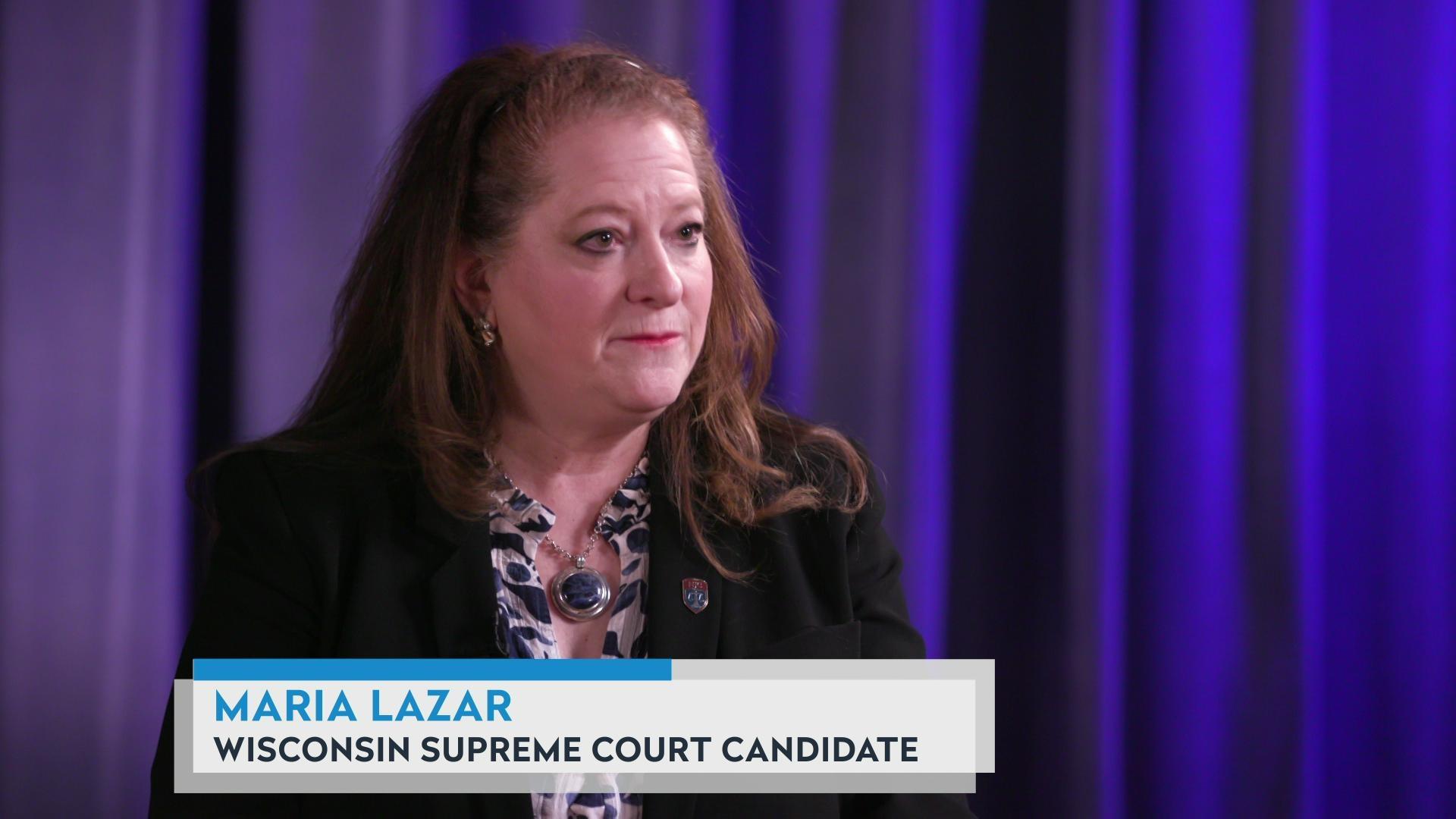
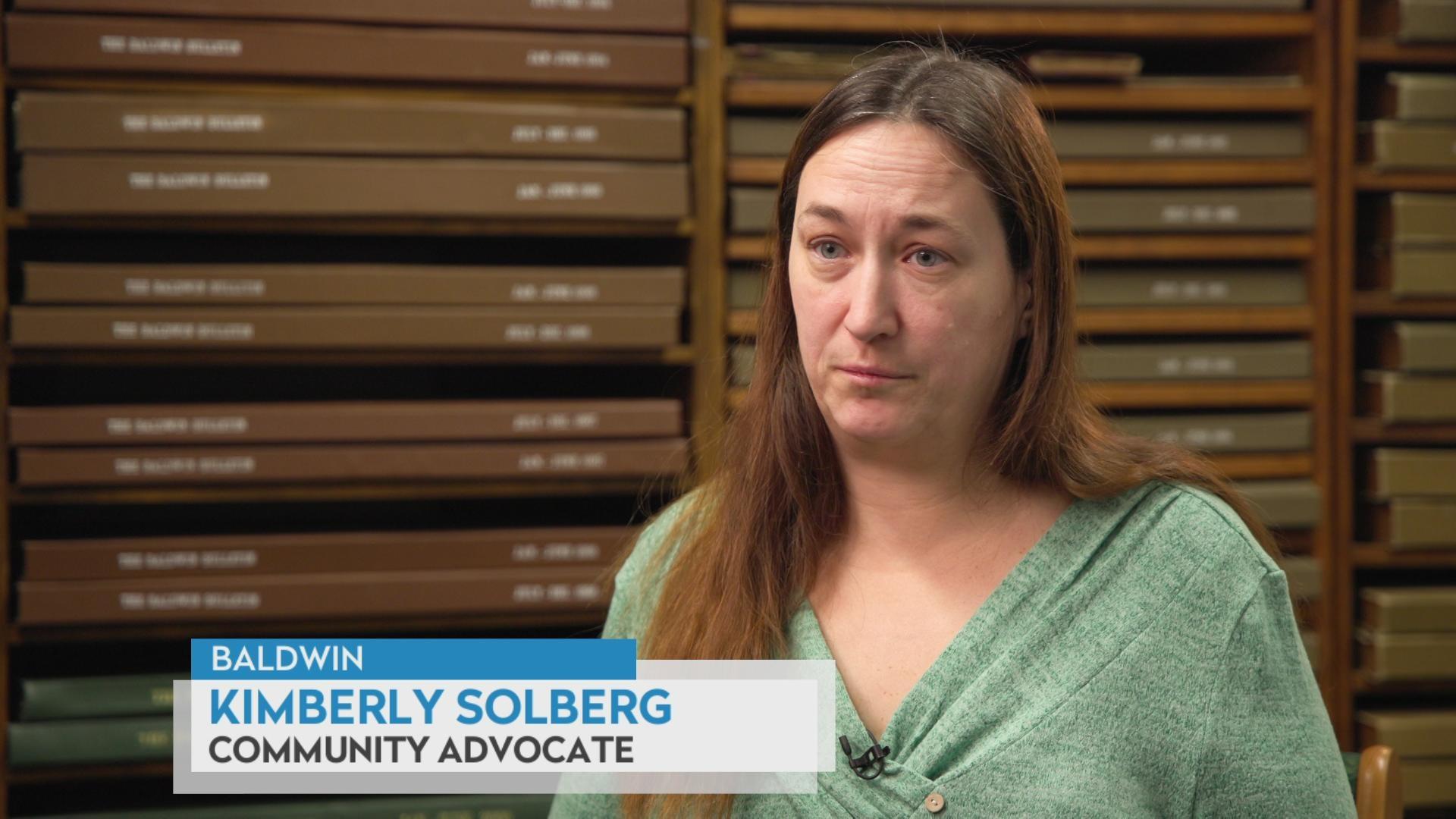
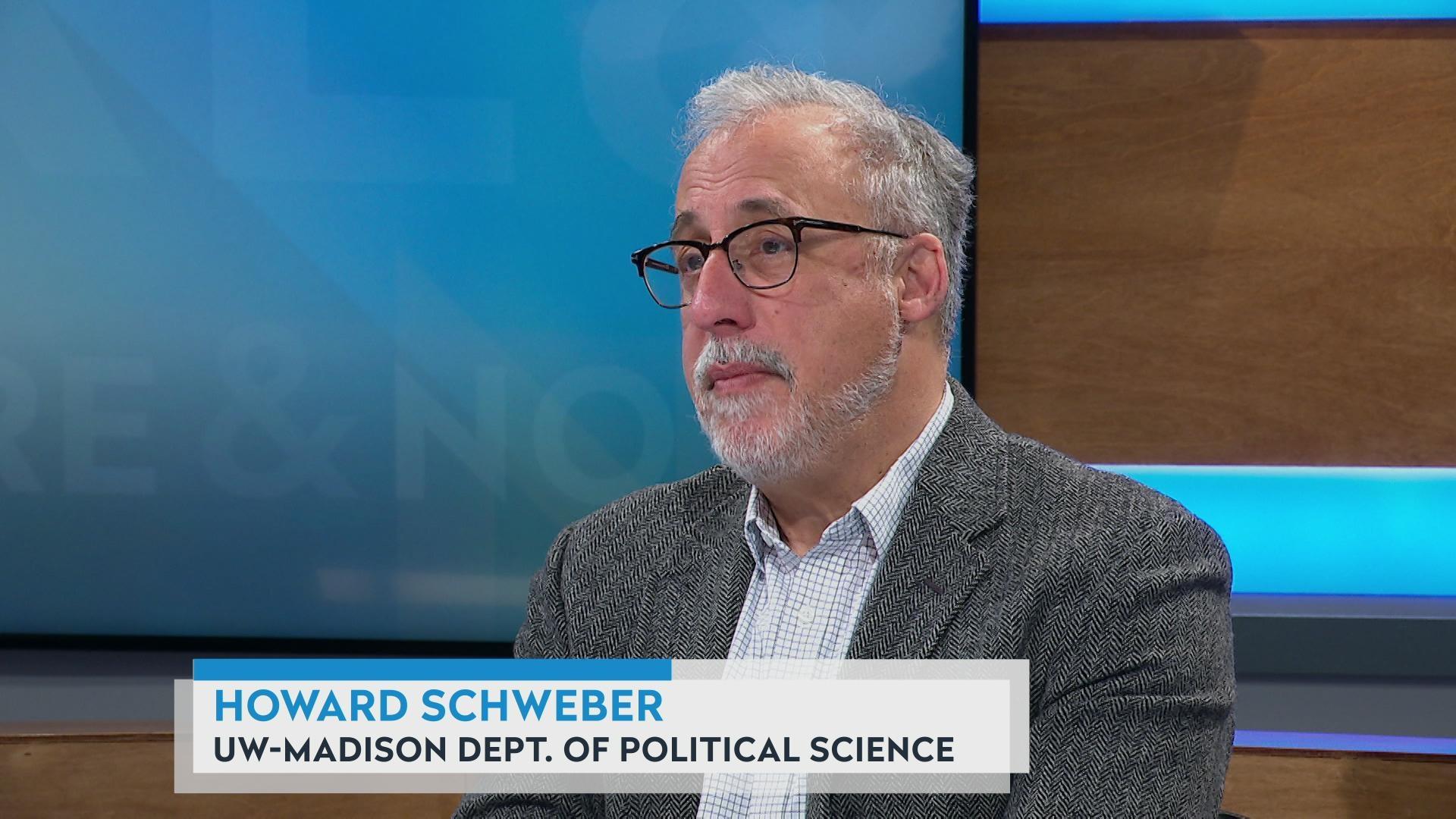
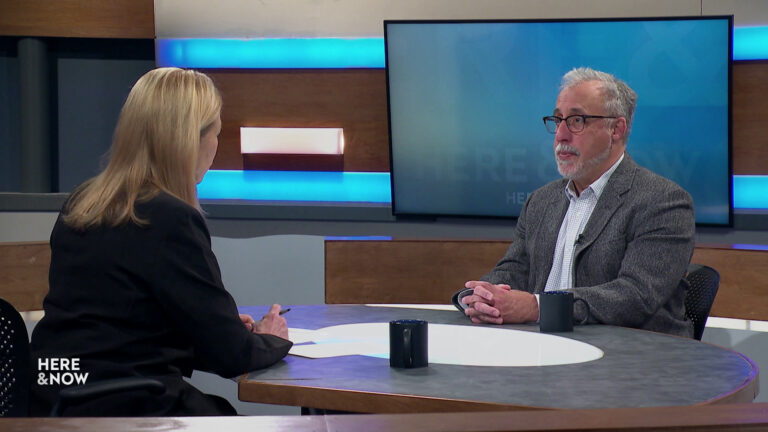
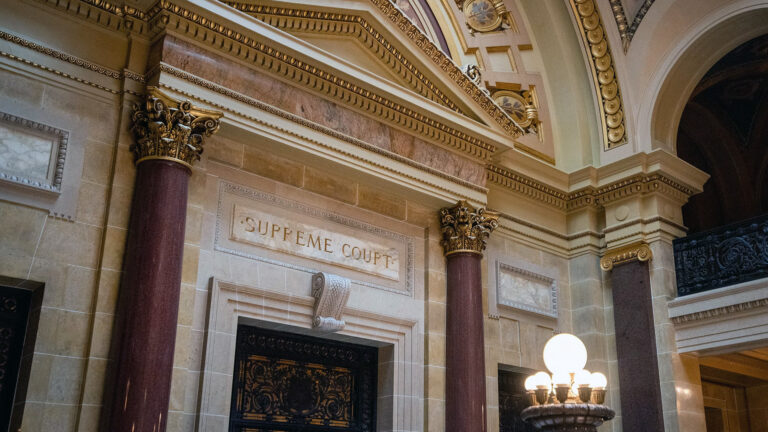
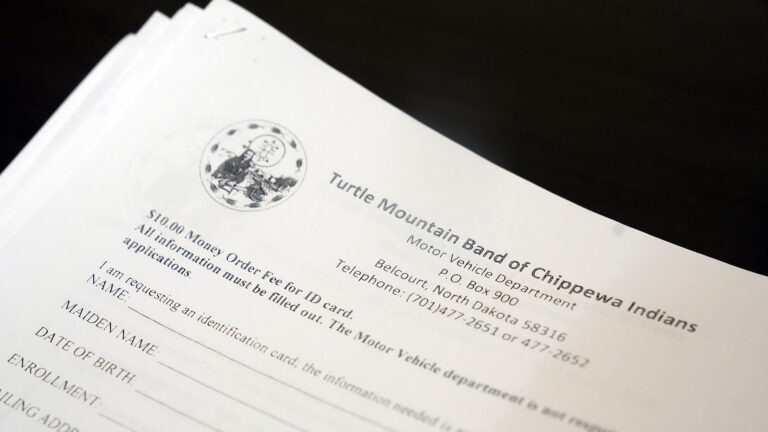

Follow Us